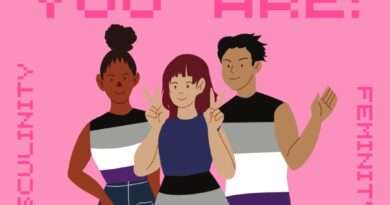Statement from AIQA extending solidarity to the publication of Teacher-Training Manual on Transgender-Inclusive School Education by NCERT
NCERT (National Council for Educational Research and Training), an autonomous educational organization under the Ministry of Education, Government of India, had published a training manual for school teachers titled “Inclusion of Transgender Children in School Education: Concerns and Roadmap” earlier this year. The comprehensive 100-page document, which aims at sensitizing the educators, was prepared by a concerted effort of a panel of gender experts, academicians, independent researchers, and representatives cutting across various areas of expertise such as gender, law, biology, psychology, and adult education, coordinated by Prof. Poonam Agarwal, professor and former head of the department of gender studies, NCERT. The objective of the Training Manual is the “Sensitization of teachers and teacher educators regarding aspects of gender diversity keeping gender-nonconforming and transgender children at center stage.” The document acknowledges that sensitizing the teachers on the issues faced by transgender, gender non-conforming, and gender non-binary student in schools is crucial to improve access to education for children identified as queer. It is worth noting that the panel also acknowledges the constant relationship between the teacher and the student, which facilitates harmony between the curriculum and the student and further recognizes the internalized social perceptions on gender roles in the teachers, which may reflect in the classroom interactions with the students, which is also inclusive of transgender, gender non-conforming and gender non-binary students. The manual also mentions that it can be used to train and sensitize other stakeholders as well. It also describes how queer individuals in the Indian subcontinent enjoyed a socially accepted position until the genesis of caste patriarchy and the colonial rule, which led to a decline in their social status and stigmatized any diverse gender and sexual identity other than cisgender-heterosexual gender and sexual expressions. It elucidates several vital terms regarding identities and issues faced by queer individuals, including the difference between biological sex and gender, gender incongruence and gender dysphoria, gender-affirming therapies, regional and cultural transgender identities. It is noted that only nineteen students from class XII and six students from class X, belonging to the queer identity, registered for the board exams in 2020 despite the high-pass percentage of these registered students, non-indicative of lack of interest in learning or a diminished intelligence in them. It is worth mentioning that NEP 2020 (National Education Policy) recognizes the queer community as a socio-economically disadvantaged group. The document further highlights the various challenges faced by the school children belonging to the queer community in school infrastructure, such as gendered uniforms and washrooms, violence and abuse, and lack of support. Also, the manual describes measures taken by various governments, the corporate sector, the Ministry of Social Justice and Empowerment, the UNDP, schools, and NCERT to improve the social status of transgender persons, which is crucial to sensitize the educators on the purpose and importance of being sensitized about the nature of issues faced by the students belonging to the queer community in the classrooms. The manual, in the end, emphasizes several concrete steps to improve school education access for queer individuals and suggests changes in school curricula for more holistic education; for example, it talks about the “discontinuation of binary practices,” like gender-segregated uniforms and rows of students in classrooms. The document ends by highlighting the contributions of transgender persons like community researcher Santa Khurai, engineer and entrepreneur Grace Banu, bodybuilder Aryan Pasha and others about whom the teachers can educate the school children to help them overcome social stigma and inhibitions on embracing their unique identities, which vastly differ from the heteronormative society. The annexure of the manual gives recommendations on how the current contents of school textbooks can be modified and appended to be queer-friendly. For example, the manual suggests that teachers include a brief discussion on trans-affirmative hormone therapies while discussing the “Biomolecules” chapter in class XII NCERT textbooks. Thus, it is very evident from the facts as mentioned above that the exhaustive effort of the panel in preparing the Teacher-Training Manual on Transgender-Inclusive School Education deserves immense appreciation and importance in the times where the Indian society is highly heteronormative and plagued with queerphobia due to the presence of various conservative political-cultural-communal elements and discourses. While the Training Manual published by NCERT received many applauses from the general public, queer-inclusive healthcare specialists, activists, and movements on social media, some of the people vehemently opposed the publication on various conservative grounds, almost every criticism from faulty interpretations, and much of them diverged towards the context of Hindu religious sentiments, as there is a mention of subjugation of queer community under the patriarchal social structure based on caste, in the document. Some have perceived it as an attack on Hinduism and have expressed their views across social media. Similarly, there is widespread criticism on the topic of gender-segregated washrooms, some of them wrongly understanding the panel’s recommendation as to abolish gender-segregated washrooms altogether. However, it was a recommendation to append gender-neutral washrooms to the existing gender-segregated washrooms. Also, the mention of puberty blockers and GAHT (Gender Affirmative Hormone Therapy) in the annexure, as a suggestion, to introduce the ideas in the Physical and Health Education syllabi of Class XI has drawn flak from some people, without realizing the fact that the Training Manual is designed for educators and not for students. Escalating these recent developments on social media, one person has filed a complaint with the National Commission for Protection of Child Rights (NCPCR), which has asked the NCERT for a response on the manual and to take appropriate action in rectifying the anomalies present in the document, without elaborating on what NCPCR meant by anomalies in the Training Manual. Amid all this turbulence and uproars in social media against the document, NCERT is deliberately forced to take down the document hosted on its website.
An organization advocating queer-inclusive healthcare named ATHI (Association of Transgender Health in India), a group of medical practitioners working towards transgender-inclusive healthcare in India, has extended its solidarity with NCERT, which published the Teacher-Training Manual on Transgender-Inclusive School Education. Statement of ATHI says: “A considerable body of research has highlighted the positive effects of Gender Affirmative Medical Care including puberty blockers and hormonal therapies on social adaptation and mental well-being of gender dysphoric youth, while lack of appropriate gender affirmation, whether by close family, schools or neighborhood, the law or society, can lead to adverse health effects … sensitization and education of Indian teachers and teacher educators about transgender concerns in an academic setting through this material will enable fostering of the gender-inclusive school system and take us closer to similar gender-sensitive models of education of Ireland, Australia, and New Zealand at the global level. This eventually will reduce mental health issues (depression, anxiety disorder, and suicidal ideations) and dropping out of schooling for transgender, gender-nonconforming, gender dysphoric, and questioning learners.” Ramakrishnan, vice-president of SAATHII (Solidarity and Action Against The HIV Infection in India), member of the NCERT panel involved in preparing the document, highlighted the importance of the Training Manual by citing the harassment and violence faced by school children belonging to the queer community in the school premises due to their gender non-conformity. As the support growing to the Training Manual from the sections of the society which acknowledges and empathizes with the amount of psychological distress faced by gender non-conforming school children, which includes the parents of school children belonging to transgender, gender non-conforming, and gender non-binary identities are writing to NCERT in support of the Training Manual and have launched online petitions. Queer activists have begun to persuade several state governments, namely West Bengal and Karnataka, to communicate their support for the Training Manual to the national agencies.AIQA (All India Queer Association) unanimously appreciates and extends its solidarity to the quintessential initiative of NCERT on the publication of the Teacher-Training Manual on Transgender-Inclusive School Education, whose objective is to sensitize the educators regarding aspects of gender diversity, keeping gender-nonconforming and transgender children at center stage. In the times when the right-wing political discourses based on communal and religious sentiments are reinforcing and amplifying the heteronormative views and queerphobia, creating a highly unsafe space for the queer community, AIQA will always strive to safeguard the community and will unconditionally support and voice for their rights.




